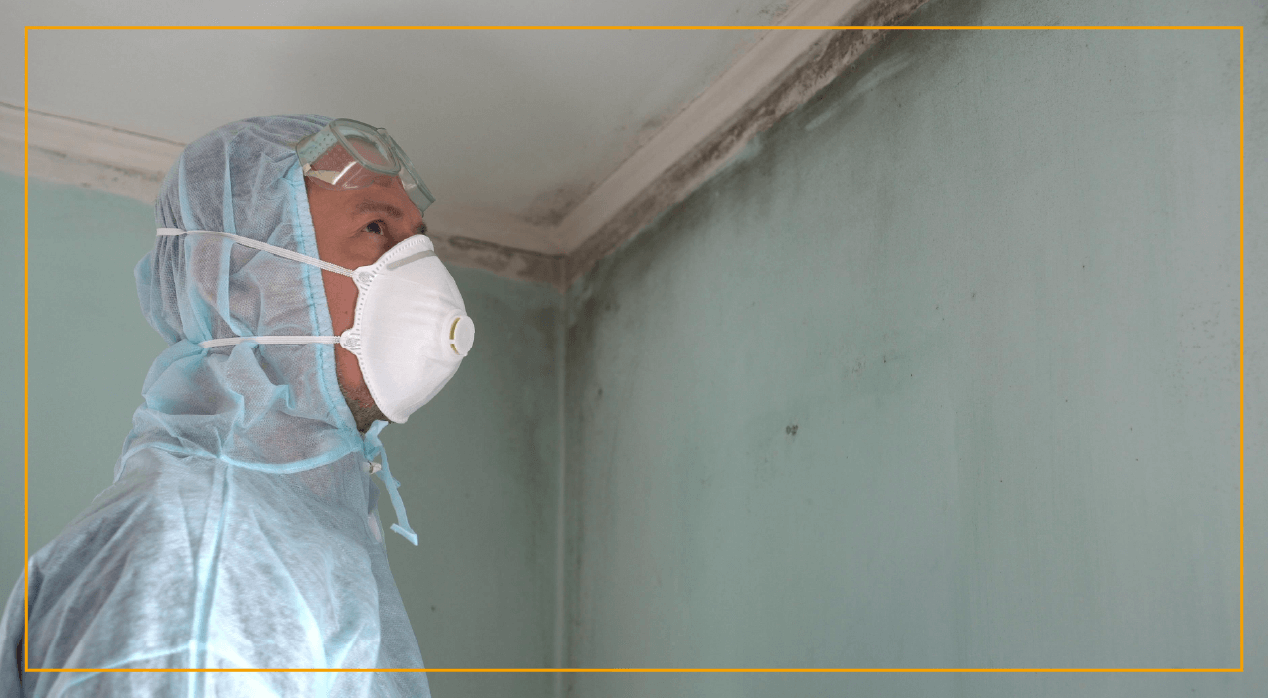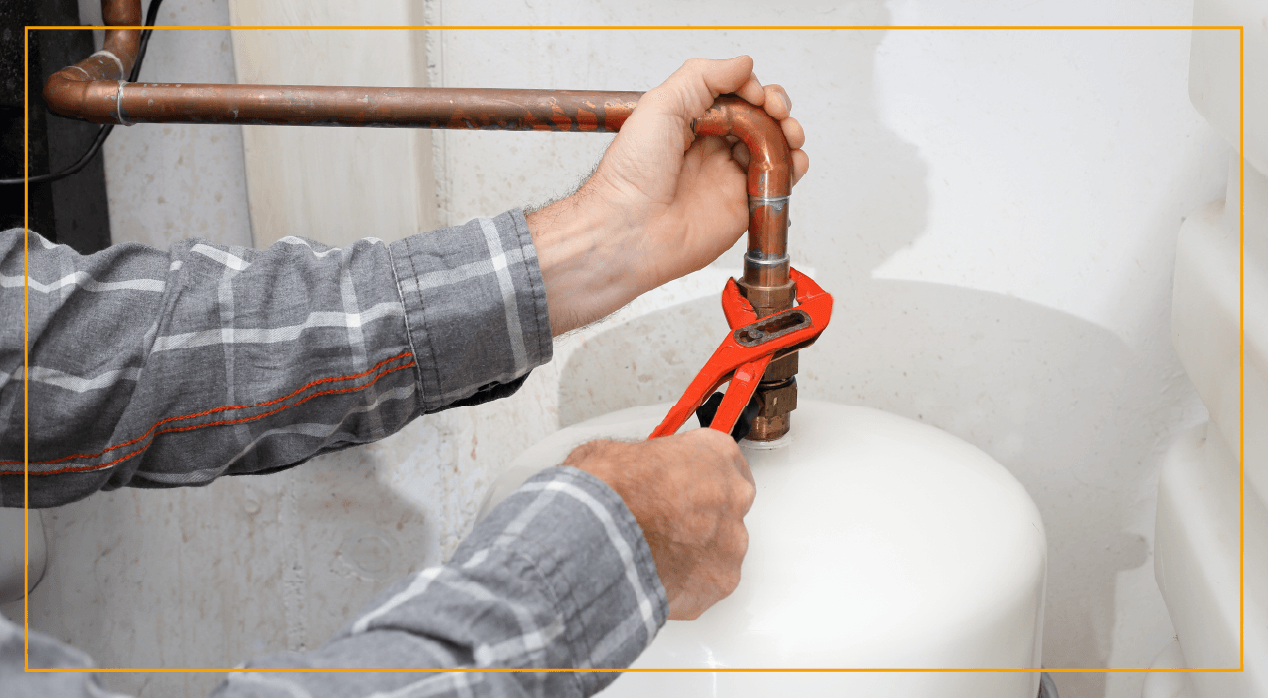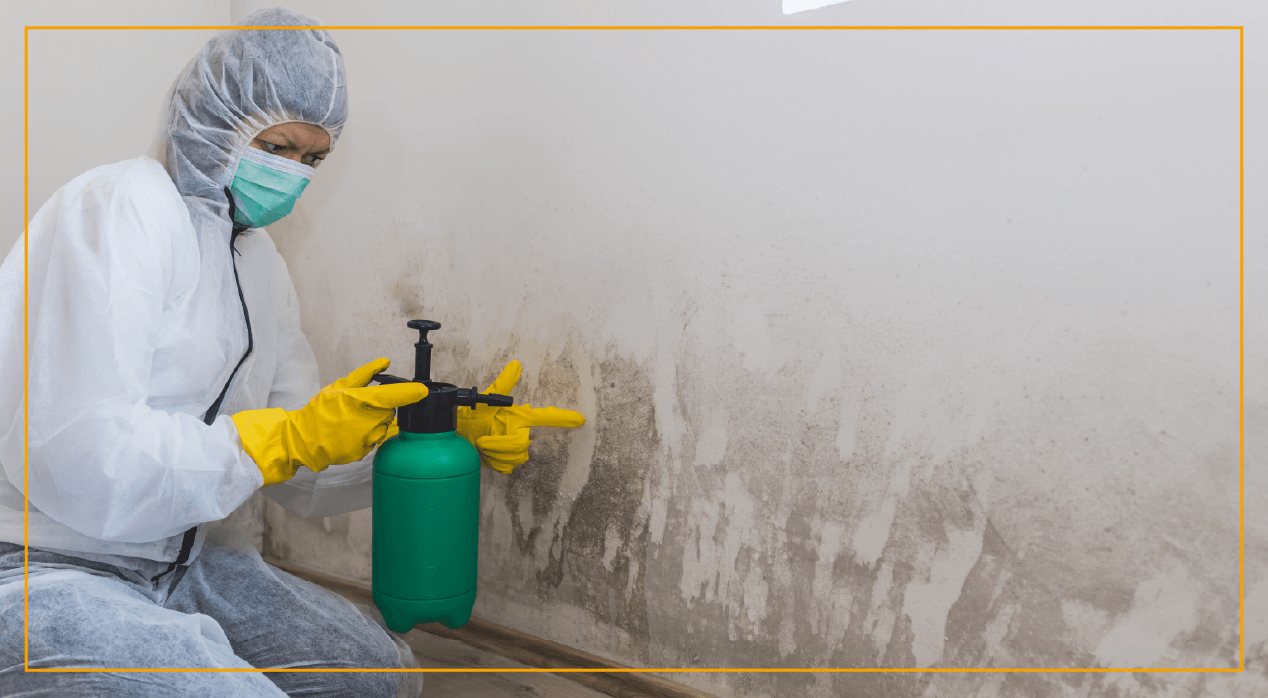 Photo: Opat Suvi / Shutterstock
Photo: Opat Suvi / Shutterstock
If you notice a strong, musty smell whenever you spend time in your basement, you’re probably curious about the most efficient and least expensive solution. Mold and mildew are the common culprits of the unpleasant odor. Naturally, mold spores build up more easily in basements due to their tendency to thrive in dark, moist environments with stagnant air.
Although prevention is always preferable, sometimes remediation is the only option once the damage is done. The practical tips below will help you address your mold issues and create a healthier home environment.
What Causes the Musty Smell in Your Basement?
Addressing the root cause is always better than just finding a simple solution. A musty smell is a tell-tale sign of mold and mildew due to basement condensation, which can have serious negative effects on your home and health.
If you’re impatient to remedy the issue, you might be tempted to just mask the smell. Especially if the odor isn’t too strong, you might resort to artificial fragrances. Try to resist the urge to find a quick fix, especially if your home’s climate makes it particularly prone to high humidity.
 Photo: AND-ONE / Getty Images
Photo: AND-ONE / Getty Images
After all, mold negatively affects the look, smell and integrity of your house. The spores seep into the carpet, curtains, furniture and even foundational structures and decompose organic matter. If mold is also behind the interior walls of your basement, it might require intense professional help to excavate the surrounding areas and walls.
How to Identify Mold
The typical approach to ending a musty smell once and for all starts with finding and eradicating the mold or mildew’s origin. When you pinpoint this location, you’ll help stop the cycle of mold growth and the resulting odor.
If you aren’t able to hire a local mold tester, consider purchasing an inexpensive mold testing kit. Alternatively, you could do a quick test for mold by dipping a swab in diluted bleach solution.
The solution should be one part bleach, 16 parts water. Take a cotton swab or sponge and dab it on a spot you think could be mold. If the spot quickly lightens or returns shortly after wiping it away, it’s likely mold. Otherwise, it’s probably just dirt.
 Photo: Fevzile / Shutterstock
Photo: Fevzile / Shutterstock
How to Get Rid of Basement Odor
Once you’ve confirmed that mold or mildew is causing the musty smell, it’s time to address the larger problems with your basement that are compounding the issue.
As you’re in the process of troubleshooting, it can’t hurt to neutralize the smell. Leave out large open containers of baking soda, which helps absorb foul smells. You could also use bowls of white vinegar. In the best-case scenario, set out a few buckets of salt crystals or non-toxic silica gel.
However, don’t keep these substances out in the open if you have pets or small children around because they’re toxic if ingested. If needed, restrict basement access as a safety precaution.
Leaking basement walls, windows and issues with a basement’s drywall are main contributors to basement odors in addition to high humidity. Here are some solutions to not only get rid of the musty smell in your basement, but also to deal with the common underlying causes.
How to Deal With Moisture From Water Leaks
You don’t need to live in a humid climate to experience basement condensation issues. The main sources of water in basements are:
- Water dripping off an uninsulated, exposed pipe
- Water leaking through a basement window
 Photo: rtbilder / Shutterstock
Photo: rtbilder / Shutterstock
If you catch “sweating” pipes fast enough, you could simply wrap them with foam pipe insulation, which is an affordable solution. However, a pipe that is leaking in real-time requires you to hire a local plumber as soon as possible.
If you notice water collects under your basement window whenever it rains, it’s a clear indicator that water could be seeping in and triggering mold growth.
Be sure to fill basement window wells with gravel to minimize clogs and water accumulation. It’s worth the cost of weather stripping, caulking and sealing all window frame leaks to prevent ongoing mildew and mold issues.
How to Reduce General Humidity and Condensation
 Photo: Mariia Boiko / Shutterstock
Photo: Mariia Boiko / Shutterstock
Using a dehumidifier, try to keep the humidity level in your basement under 60%. Unfortunately, basements will always have some level of humidity due to the natural circulation of warm, moist air to the underground portion of your house, where it quickly cools and deposits.
Dehumidifiers are game-changers because they pull the water vapor out of the air so it can’t feed mold and mildew. Which type of dehumidifier is preferable for basements? A compressor dehumidifier is ideal. It works by vacuuming water-laden air over chilled coils, which causes the vapor to condense in a container.
Here are a few affordable yet highly rated options:
 Photo: Jovica Varga / Shutterstock
Photo: Jovica Varga / Shutterstock
No matter the severity of the smell or mold issue, it can’t hurt to look into the cost of mold removal to get to the bottom of your mold issues once and for all. When it comes to vanquishing mold, it’s important to be patient and willing to hire professional help for safety and efficiency.
After all, household mold remediation of any kind is rarely a quick weekend project but rather a process that takes weeks. It’s also crucial to resolving excess moisture issues before investing in mold removal, so the cycle doesn’t restart. Thankfully, it will all be worth it when you can enjoy a fresh basement area free of mold toxins.
 Why So Many Millennial Homeowners Are Remodeling Their Basements
Why So Many Millennial Homeowners Are Remodeling Their Basements  Basement Mold Removal
Basement Mold Removal  New Home Production is Falling Behind
New Home Production is Falling Behind  How to Choose the Best Smart Thermostat for Your Home
How to Choose the Best Smart Thermostat for Your Home  How to Choose the Right Sump Pump to Minimize Your Flood Risk
How to Choose the Right Sump Pump to Minimize Your Flood Risk 

Are You Familiar With This Topic? Share Your Experience.